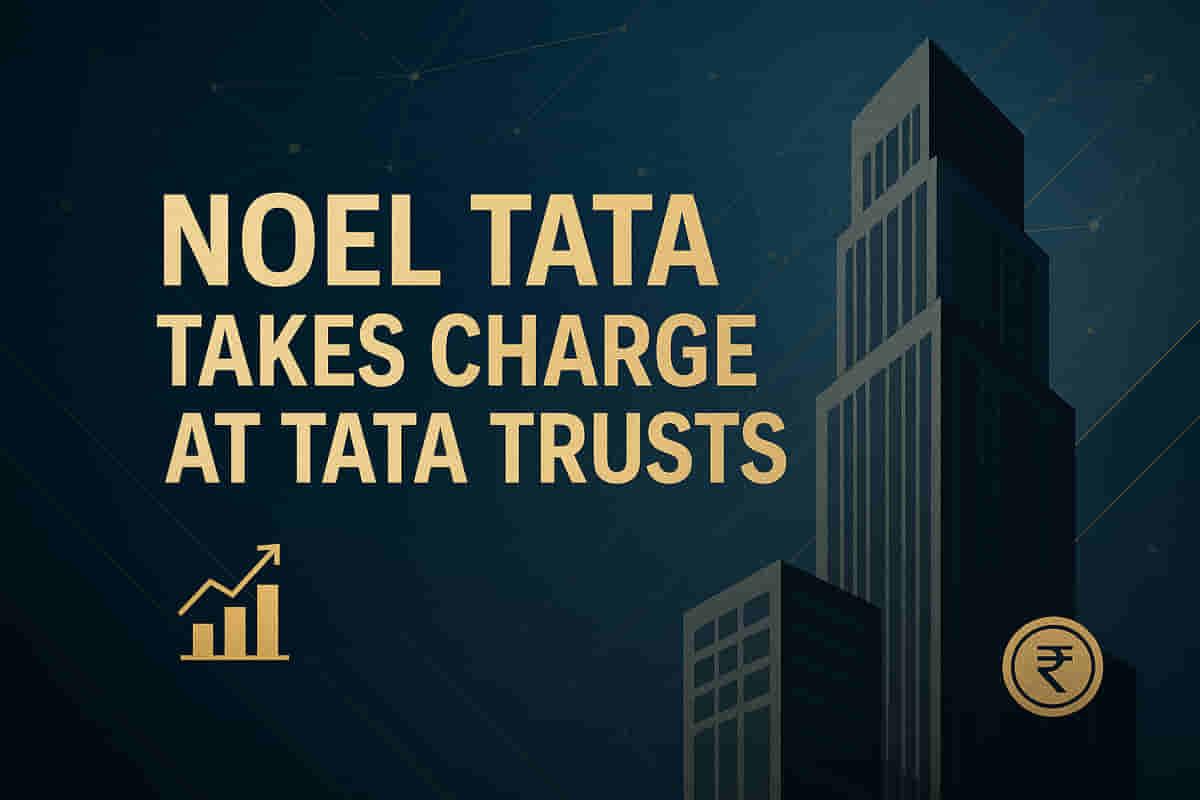Noel Tata Strengthens Grip on Tata Group as Mehli Mistry Exits Trusts Amid Governance Dispute
Economy
|
29th October 2025, 10:20 PM

▶
Short Description :
Detailed Coverage :
Mehli Mistry's departure from the boards of Tata Trusts marks a significant shift in the governance of the charitable organizations that hold controlling stakes in the Tata Group. The exit stems from prolonged tensions, with some trustees perceiving Mistry as obstructing decision-making. This change is seen as restoring clarity and authority to the leadership under chairman Noel Tata.
The dispute became public in September when non-nominee directors, led by Mistry, blocked the reappointment of Vijay Singh as a nominee director of Tata Trusts on the Tata Sons board. This action followed a review of nominee directors reaching the age of 75. Noel Tata and Venu Srinivasan did not support Singh's removal, and despite suggestions to replace Singh with Mistry, Noel Tata rejected this. Vijay Singh subsequently resigned.
Further divisions emerged when Noel Tata, along with Srinivasan and Vijay Singh, chose not to approve Mistry's reappointment as a lifelong trustee. Mistry argued that his reappointment was a procedural formality based on a prior resolution, but other trustees countered that such critical decisions could not be reduced to a mere formality, citing legal and fiduciary obligations. While some trustees supported Mistry's reappointment, the lack of unanimity led to his three-year term expiring without renewal.
The Tata Trusts own two-thirds of Tata Sons, the group's holding company, which has veto power over major decisions at Tata Sons via its Articles of Association. With Mistry's exit, key issues like the public listing of Tata Sons, board appointments, and investments might be revisited. The potential IPO of Tata Sons is subject to RBI approval. New trustees are expected to be inducted to ensure consensus. Mistry may explore legal challenges, but the Trust deeds are likely to be paramount.
Impact: This development has a significant impact on the strategic direction and governance of one of India's largest conglomerates. It centralizes control with Noel Tata, potentially accelerating key decisions like the Tata Sons IPO and corporate restructuring, which could affect various listed Tata group companies. Rating: 8/10
Difficult terms: Trustee: An individual or entity entrusted with managing assets or property for the benefit of others. In this case, managing Tata Trusts. Philanthropic: Aiming to promote the welfare of others, especially by the donation of money to good causes. Conglomerate: A group of diverse companies under common ownership, usually involving different industries. Nominee Director: A director appointed to a company's board to represent the interests of a specific shareholder or stakeholder group, such as Tata Trusts on Tata Sons' board. Non-nominee Director: A director appointed to a company's board who does not represent a specific shareholder or stakeholder group; they typically act in the broader interest of the company. Fiduciary Duty: A legal or ethical obligation of one party to act in the best interest of another party. Trustees and directors have fiduciary duties to the entities they serve. Articles of Association: A document that defines the rules and regulations for the internal management of a company. IPO (Initial Public Offering): The first time a company offers its shares to the public, typically through a stock exchange. Sub judice: A legal case that is currently being heard by a court of law and on which it is forbidden to comment or publish anything further.